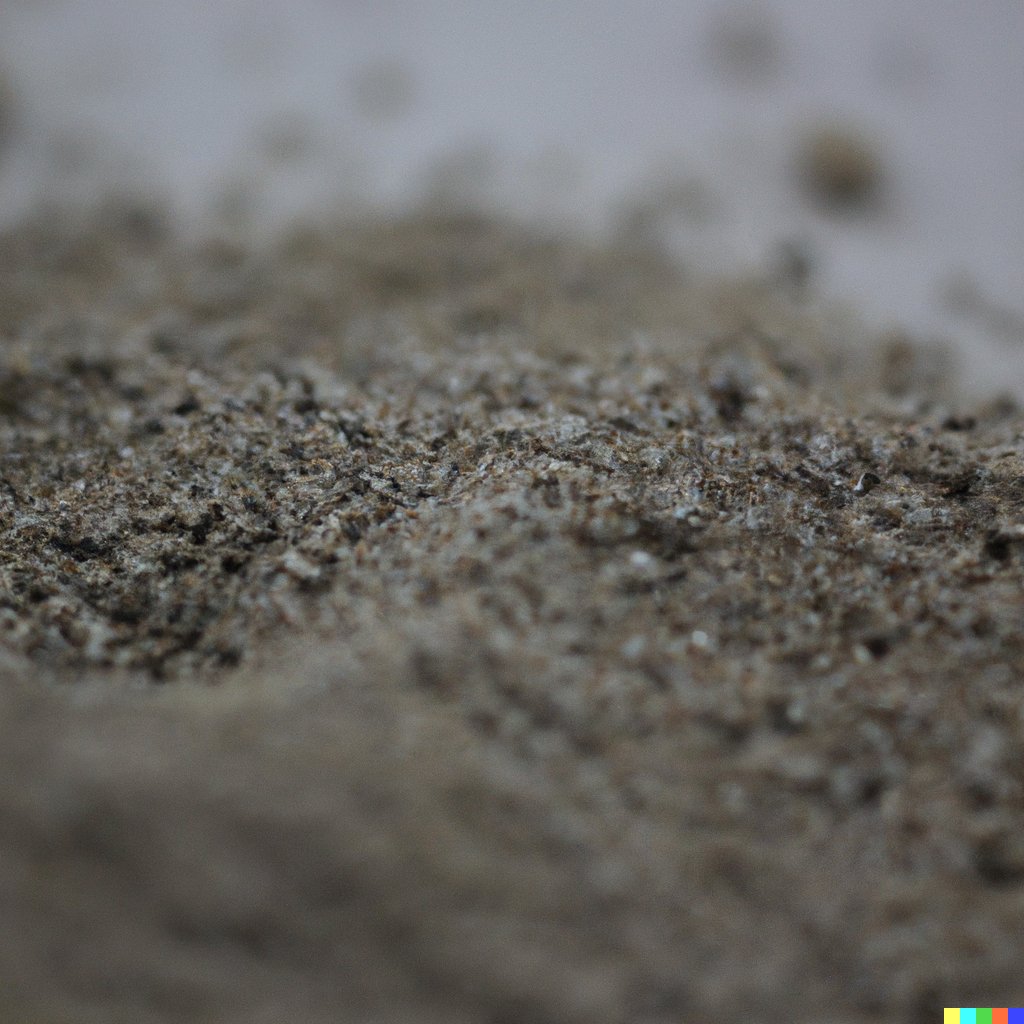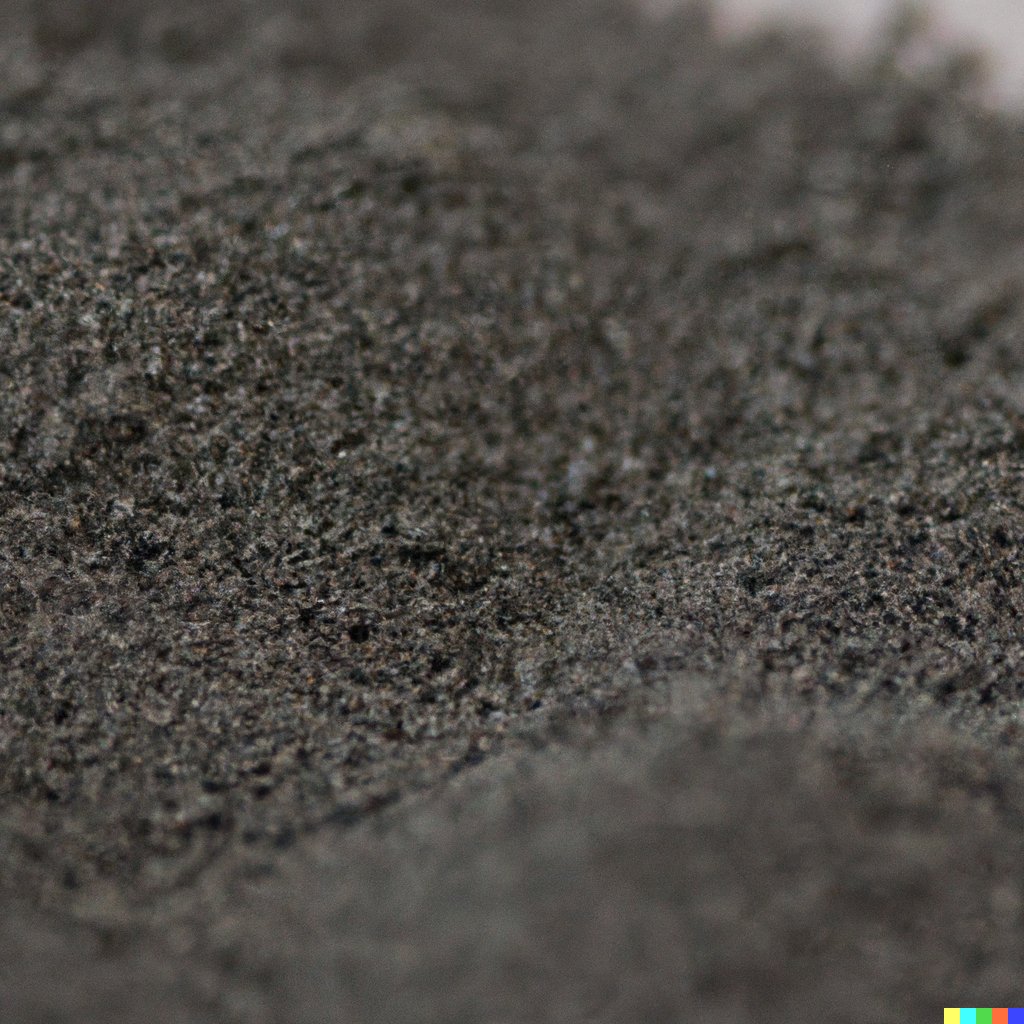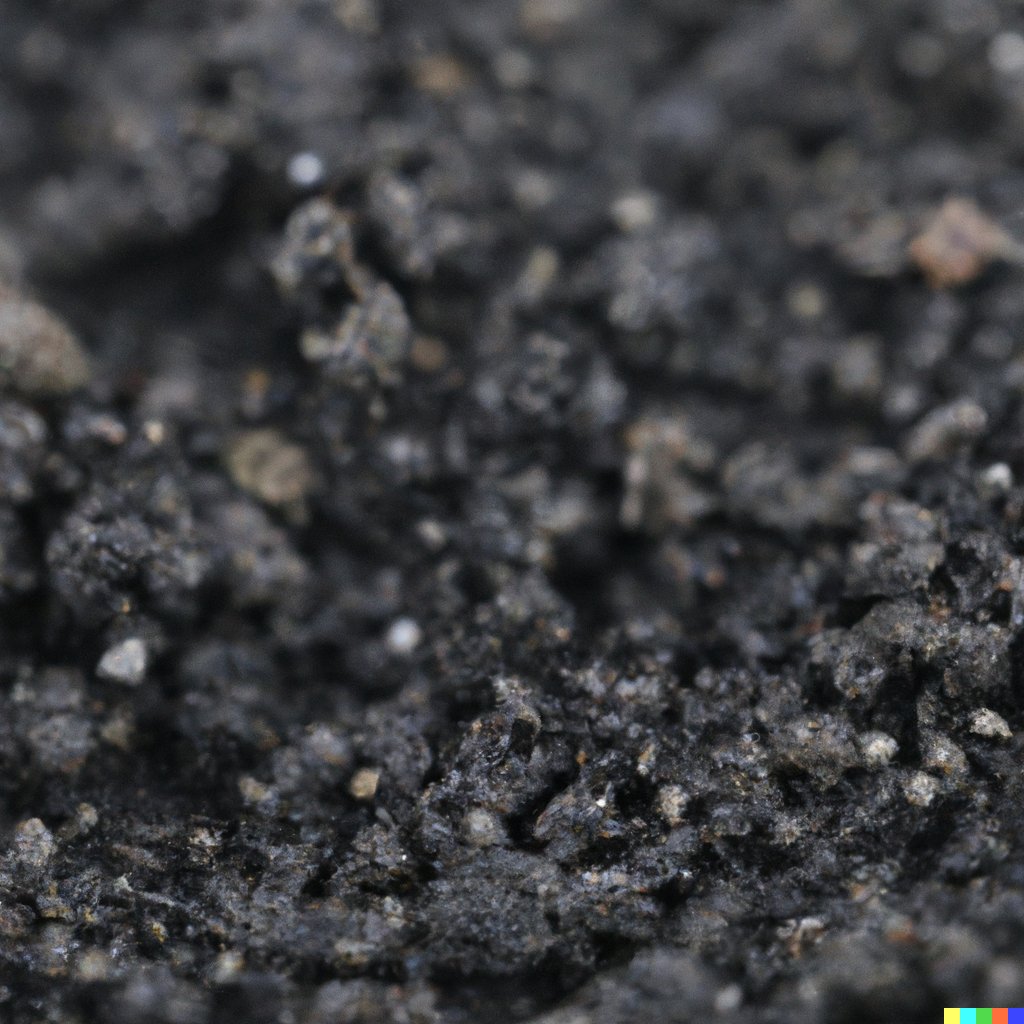
Azomite rock dust is a naturally-occurring mineral product mined from Utah's desert, known to replenish essential micronutrients in soils. Rich in a broad spectrum of trace minerals, it enhances soil health, leading to increased crop yield and quality. Suitable for organic farming, it's a sustainable solution for modern agriculture.
*As an Amazon Associate, I earn commission from qualifying purchases made through links in this post.*
As Azomite products only differentiate in packaging and price, we filtered the best options available on the market for Azomite Rock Dust incl. shipping on amazon for you:
|
Product Name |
Pound |
Price per Pound ($) |
Price - October 2024 |
|
Azomite Raw Supply Organic Trace Mineral Powder 44LB Micronized |
44.2 |
0.9524$ |
42.10$ |
|
Garden Smart Wholesale Bulk Azomite Micronized Organic Trace Rock Dust |
44.0 |
1.1588$ |
50.99$ |
|
Azomite Micronized Bag, 44 lb (2-Pack) |
88.0 |
1.0226$ |
89.99$ |
|
Azomite Organic Micronized Trace 0-0.2 Fertilizer Bulk Bag of 67 Essential Minerals |
20.0 |
1.4495$ |
28.99$ |
|
20 Pounds of Azomite from The Seed Supply - Natural Trace Mineral Powder |
20.0 |
1.4495$ |
28.99$ |
Who Benefits: Everyone, Especially Children
Children, the future stewards of our planet, are at the heart of this narrative. The health, taste and fragrance-enhancing qualities of Azomite-enriched produce pave the way for a robust, disease-resistant generation.
What is Azomite Rock Dust?
Azomite, a unique rock dust, is a naturally mined volcanic mineral product. It contains a broad spectrum of over 70 trace minerals, crucial for both soil and human health.
When to Use: Reap the Benefits Over Time
The best time to apply Azomite is during soil preparation stages, although periodic top application can also maintain soil fertility.
Where to Apply: Gardens, Farms, and Beyond
From backyard vegetable gardens to vast agricultural lands, Azomite finds its place anywhere there's soil and a vision for better health.
Why it Matters: A Sustainable and Health-driven Choice
In an age of environmental decline and health concerns, Azomite offers a dual solution, enhancing soil vitality and crop nutrition.
How it Works: Nature's Magic
When introduced to the soil, Azomite releases its rich mineral content, which plants absorb, leading to nutrient-dense produce.
2. Dive Deep: Unveiling the Secrets of Azomite Mineral content
Azomite isn't just another rock dust; it's a symbol of nature's generosity, packed with minerals and elements that our modern farming practices often deplete.
Composition: Nature's Bounty
Beyond just N-P-K (Nitrogen, Phosphorous, Potassium - the macronutrients), Azomite boasts over 70 trace minerals. This includes silica, magnesium, and calcium, which are pivotal for plant health.
| This analysis is what scientists refer to as a "Typical Analysis" (similar to an average analysis) and it is not a "Guaranteed Analysis" from a regulatory standpoint. Azomite is a natural, mined product and expect some variations in the various elemental components. The analysis is offered for those who wish to know generally what elements are commonly found in Azomite with sophisticated scientific analytical methods. |
| Mineral Analysis | Element Analysis con't. | ppm | ||
| Alumina, Al2O3 | 11.43% | Gold, Au | 0,005 | |
| Barium oxide, BaO | 0.09% | Hafnium, Hf | 21 | |
| Calcium oxide, CaO | 3.67% | Holmium, Ho | 0,6 | |
| Carbon, C | 0.61% | Indium, In | 0,01 | |
| Chlorine, CI | 0.22% | lodine, I | 2,2 | |
| Ferric oxide, Fe2O3 | 1.37% | Lanthanum, La | 220 | |
| Hydrogen, H | 0.38% | Lead, Pb | 6 | |
| Magnesium oxide, MgO | 0.78% | Lithium, Li | 859 | |
| Manganese oxide, MnO2 | 0.02% | Lutetium, Lu | 0,5 | |
| Nitrogen, N | 0.15% | Mercury, Hg | 0,01 | |
| Oxygen, O | 0.73% | Molybdenum, Mo | 0,23 | |
| Phosphorus pentoxide, P2O5 | 0.15% | Neodymium, Nd | 5,1 | |
| Potassium oxide, K2O | 5.23% | Nickel. NI | 3 | |
| Silicon dioxide, SiO2 | 65.85% | Niobium, Nb | 40 | |
| Sodium oxide, Na2O | 2.07% | Palladium, Pd | 0,008 | |
| Strontium oxide, SrO | 0.03% | Praseodymium, Pr | 27 | |
| Sulfur trioxide, SO3 | 0.21% | Rhenium, Re | 0,011 | |
| Titanium dioxide, TIO2 | 0.20% | Rhodium, Rh | 0,002 | |
| Loss on Incineration | 6.43% | Rubidium, Rb | 325 | |
| Ruthenium, Ru | 0,013 | |||
| Additional Element Analysis | ppm | Samarium, Sm | 6,2 | |
| Antimony, Sb | 0.4 | Scandium, Sc | 2,7 | |
| Arsenic, As | 1.1 | Selenium, Se | 0,7 | |
| Beryllium, Be | 3.3 | Silver, Ag | 0,005 | |
| Bismuth, Bi | 3.5 | Strontium, Sr | 380 | |
| Boron, B | 29 | Sulfur, S | 240 | |
| Bromine, Br | 6.6 | Tantalum, Ta | 2,7 | |
| Cadmium, Cd | 0.3 | Tellurium, Te | 0,022 | |
| Cerium, Ce | 230 | Terbium, Tb | 0,8 | |
| Cesium, Cs | 21.7 | Thallium, TI | 5,9 | |
| Chromium, Cr | 6.1 | Thorium, Th | 180 | |
| Cobalt, Co | 22.3 | Thulium, Tm | 0,6 | |
| Copper, Cu | 12 | Tin, Sn | 2,9 | |
| Dysprosium, Dy | 2.7 | Tungsten, W | 26 | |
| Erbium, Er | 1.7 | Uranium, U | 4 | |
| Europium, Eu | 3.7 | Vanadium, V | 7,8 | |
| Fluorine, F | 390 | Ytterbium, Yb | 1,4 | |
| Gadolinium, Gd | 3.7 | Yttrium, Y | 23 | |
| Gallium. Ga | 15 | Zinc, Zn | 64,3 | |
| Germanium, Ge | 6.1 | Zirconium, Zr | 62,7 |
Origin: Rooted in Volcanic Activity
Hailing from the volcanic ash deposits of Utah, USA, Azomite is nature's answer to soil depletion, offering a sustainable solution for modern agriculture.
Comparison: The Azomite Edge
While there are other mineral additives, Azomite's vast spectrum of minerals, its natural origin, and the consistency in its composition make it stand out.
3. Sustainability Benefits: A Green Revolution with Rock Dust
Incorporating Azomite is more than just a gardening or farming choice; it's an easy commitment to a lazy sustainable future.
Soil Health: A Rich Foundation
Healthy soil is the cornerstone of sustainable farming. Azomite enriches soil by feeding bacteria, fungi, and insects, ensuring plants have access to vital minerals, leading to robust and resilient crops.
Reduced Chemical Usage: Towards Organic Farming
With Azomite in play, there's reduced dependency on chemicals like synthetic fertilizers, fungicides and pesticides. This is "lazy sustainability" at its best: a simple change in farming practice leads to long-term benefits.
Carbon Footprint: An Eco-friendly Choice
Choosing Azomite is a nod to reduced carbon footprints. Natural, non-processed, and beneficial, it's a step towards holistic and environmentally-friendly agriculture.
4. Health Benefits: Nourishing the Earth and Ourselves
In our quest for better health, the solution often lies beneath our feet. Rock Dust is proving to be that very solution, enhancing the quality of our soil and the food we consume.
Nutrient Boost: A Gastronomic Delight
Every sprinkle of Azomite in the soil is a promise of nutrient-rich produce on our tables. It's a game-changer in agriculture, ensuring every bite we take is loaded with nature's best minerals.
Children's Health: Building Tomorrow's Titans
For the saplings of today who will grow into the giants of tomorrow, Azomite-enhanced produce is a boon. Consuming these crops ensures children receive all essential nutrients, fortifying them against diseases.
Detoxifying Properties: Mother Nature's Cleanup Crew
Azomite is not just about adding; it's also about subtracting. Its unique properties actively remove harmful toxins from the soil, ensuring a safer, cleaner crop yield.
5. Lazy Sustainability: The Ease of Incorporating Azomite Rock Dust
Sustainability doesn't always require rigorous effort. Sometimes, it's about making smart choices, like incorporating Azomite into our farming practices.
Simple Application: Nature's Magic in a Jiffy
Incorporating Azomite is as easy as sprinkling it onto your garden or farm. No complicated procedures, just a straightforward application that reaps long-term benefits.
Cost-Effective: Sustainable Farming on a Budget
For those thinking eco-friendly solutions come with a hefty price tag, Azomite challenges this notion. Its long-term benefits to soil health and produce quality often outweigh initial costs.
Time-Saver: More Time for What Truly Matters
With Azomite, gone are the days of frequent, rigorous soil treatments. Its lasting impact means fewer interventions and more time enjoying the fruits of your labor.
6. Real-world Examples: Success Stories and Testimonials
While the science and benefits of Azomite are clear, nothing speaks louder than real-world success stories from those who've embraced this natural wonder.
Farmers' Testimonials: From Skeptics to Believers
Across the globe, farmers who've switched to Azomite sing its praises. Their experiences range from improved crop yields to healthier, more robust plants resistant to diseases.
Studies: Science Backs the Azomite Revolution
Multiple scientific studies underscore the myriad benefits of Azomite. From its positive impact on soil health to the undeniable boost in crop nutrient levels, the research is both compelling and conclusive.
On reddit an user posted some studies about azomite rock dust.
7. Frequently Asked Questions: Understanding Azomite Rock Dust
1. What exactly is Azomite rock dust?
Azomite rock dust is a unique mineral substance mined from Utah's desert regions. Certified for organic use by OMRI, it's primarily employed as an agricultural soil enhancer.
2. Why is Azomite rock dust significant for agriculture?
Global soil has been losing essential minerals due to continuous cultivation. Rock dust helps restore these crucial nutrients, ensuring soil health and increased crop yield.
3. What's the origin story of Azomite rock dust?
This mineral-rich substance is sourced from ancient volcanic ash deposits in Utah. The ash, combined with mineral-rich seawater, gave birth to Azomite rock dust's unique composition.
4. How does Azomite rock dust influence plant growth?
Research indicates that crops nurtured with Azomite rock dust tend to yield larger, more nutritious, and tastier fruits and veggies.
5. What's behind the name "Azomite rock dust"?
Coined by founder Rollin Anderson, Azomite rock dust stands for "A to Z Of Minerals Including Trace Elements."
6. What are the different forms of Azomite rock dust available?
You can find Azomite rock dust in three variants: Micronized, Field Grade, and Granulated. Each has its unique application and benefits.
7. Can Azomite rock dust be used with all soil types?
Absolutely! Regardless of your soil's pH or type, Azomite rock dust has consistently shown positive outcomes in varied conditions globally.
8. How does Azomite rock dust differ from regular fertilizers?
While traditional fertilizers primarily replenish macronutrients, Azomite rock dust ensures the soil gets a balanced dose of both macro and trace minerals, essential for optimal plant growth.
9. Is there any danger of over-applying Azomite rock dust?
No worries there. Azomite rock dust is 100% natural, without any fillers. It poses no harm to either plants or the environment.
10. Is Azomite rock dust organic certified?
Yes, OMRI has listed several Azomite rock dust products suitable for organic production.
11. How does Azomite rock dust's mineral profile differ from other rock dusts?
Unlike glacial rock dusts, Azomite rock dust stems from compacted volcanic ash, giving it a distinctive mineral composition.
12. Are there any concerns about heavy metals in Azomite rock dust?
Azomite rock dust contains trace amounts of metals, much lower than typical soil. Plus, it's FDA classified as "Generally Recognized as Safe" (GRAS).
13. Can humans consume Azomite rock dust?
Azomite rock dust is not marketed for direct human consumption. It's primarily an agricultural product.
8. Concluding Thoughts: Making Sustainable Choices for the Future
In our fast-paced world, making eco-friendly choices might seem daunting. Yet, every sprinkle of Azomite Rock Dust is a step towards a sustainable, healthier future. Not only does it rejuvenate our land, but it also ensures that the food on our plate is packed with nature's best.
A Call to Action
Let's embrace a future where our children grow up knowing the taste of real, nutritious food. Consider integrating Azomite Rock Dust into your farming or gardening routine. It's a small step for you, but a giant leap for sustainable living.













